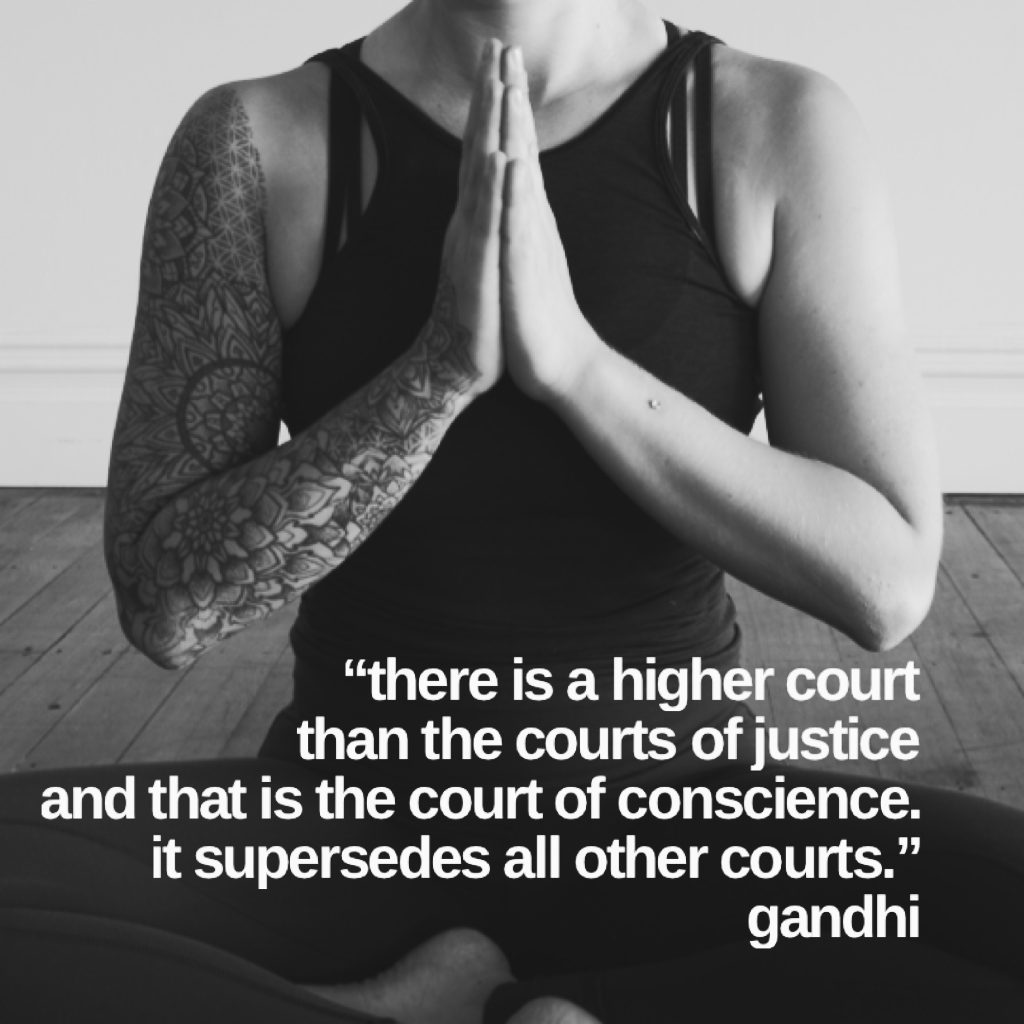Living with Integrity: How Yoga Practice Shapes our Conscience and Consciousness

On April 5, we celebrate the ‘International Day of Conscience,’ a day dedicated to honouring the significance of human conscience as established by the United Nations General Assembly. It serves as a global reminder to reflect on our moral values and review our efforts in cultivating peace and social justice in the world, or closer to home, in our communities. But what exactly is conscience, and how can we nurture it beyond just this one day of the year?
Conscience acts as our moral compass, guiding us through the ethical challenges we face in life. It is that inner voice that speaks to us when we encounter decisions that test our values and principles. Shaped by our upbringing, experiences, and beliefs, our conscience guides us in the discernment of goodness from immorality. In the realm of yoga therapy, our conscience, the nectar of consciousness, helps us distinguish between actions that lead to dis-ease and suffering from those that promote well-being.
In yoga practice, the foundational principles of Yama (moral restraints) and Niyama (personal disciplines), the first two limbs of the eight-fold path, provide a framework for ethical living and nurturing a healthy conscience. As practitioners, it is essential to align our daily actions with these principles, such as kindness, truthfulness, self-discipline, and contentment, if we are to embody the core values of yoga.
By embracing and embodying these ethical precepts, we empower ourselves to make conscious choices that uphold our integrity. Listening to our conscience and acting in harmony with it brings a sense of peace and wholeness, while ignoring it can lead to feelings of remorse, guilt, and shame.
On the journey of self-discovery and spiritual growth, yoga philosophy identifies five mental afflictions or spiritual poisons known as kleshas, which cloud our judgment, hinder our path to a clear conscience, and ultimately, obstruct our path to liberation, or moksha. These mental obstacles as noted by Patanjali in the yoga sutras are responsible for our suffering in life. They are Avidya (ignorance of the truth of who we are), Asmita (ego identification, the identification of I-ness over We-ness, entanglement in an illusion of who we think we are), Raga (attachment to worldly pleasures, material objects, relationships, or desire for status, power and other unhealthy desires), Dvesha (aversion or anger towards unpleasant things, people, and experiences), and Abhinivesha (the fear of death or extinction, clinging to life).
If you are human, you may be quite familiar with these obstacles. Quieting and refining the mind through yoga practice can help us to stay on top of these kleshas and nurture our conscience. When we train our minds away from that which causes us harm toward that which connects us to our deepest truth, we refine our values, and become more skilful at reflecting on our actions, making choices that align with these values.
When grappling with issues that are weighing down on the conscience, yoga practice is an effective way of inviting clarity and peace into the mind. Whether it’s yama, niyama, yoga postures, breath practice, meditation, mantra (incantation or prayer), mudra (hand gesture), sankalpa (intention setting), or bhavana (calling into consciousness via visualisation techniques), cultivating a regular yoga practice that is right for you is a great place to start in clearing out the conscience cobwebs.
In light of the International Day Of Conscience, as George Washington once said, “Labor to keep alive in your breast that little spark of celestial fire called conscience.” By nurturing the spark of conscience within our hearts and minds, we can navigate life’s challenges with integrity, compassion, and wisdom.
To explore the depths of yoga ethics and discover other transformative practices that can enrich your life, connect with me here.

